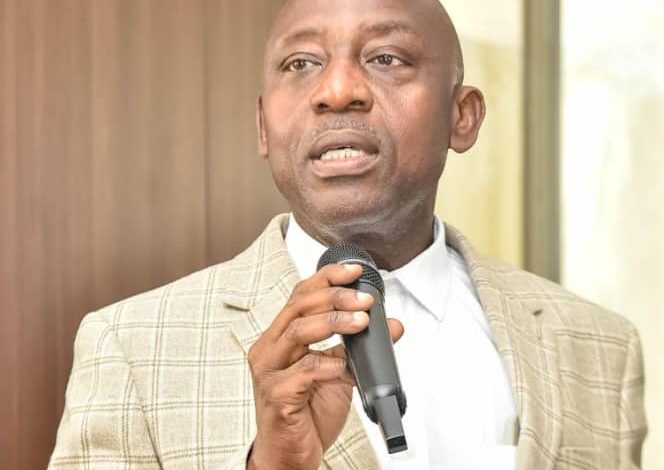
Africa’s AI Awakening: Building Transparent, Safe, and Inclusive Digital Futures
By Ojo Emmanuel Ademola
In May 2025, leaders from various African nations convened in Addis Ababa under the auspices of the African Union to discuss the future of artificial intelligence on the continent. They released a communique emphasizing that artificial intelligence has evolved from a luxury to a strategic necessity for Africa’s development, prosperity, and sovereignty.
The Promise and the Peril
Artificial Intelligence (AI) holds the promise of transformative impact across various sectors in Africa, presenting opportunities for innovation and inclusive growth. In agriculture, AI applications such as predictive analytics and smart irrigation can enhance crop yields and monitor soil health, helping to combat climate change. Healthcare can benefit from AI through improved diagnostic tools and telemedicine, particularly for rural communities that lack access to medical services. In the realm of public services, AI can streamline administrative processes and enhance transparency, thereby reducing corruption. Lastly, in education, AI-driven personalized learning and virtual classrooms can address educational disparities and promote lifelong learning across different socio-economic and linguistic backgrounds.

The promise of artificial Intelligence brings with it significant risks that need to be addressed promptly and thoughtfully. One major concern is algorithmic bias, which often stems from non-representative or skewed training data, potentially leading to discriminatory outcomes that perpetuate existing social inequalities. Additionally, the use of surveillance technologies can threaten privacy, freedom of expression, and human rights, particularly in politically unstable regions. There are also worries about data exploitation by foreign tech companies, raising issues of digital colonialism and undermining national data sovereignty. Lastly, if AI is not deployed equitably, there is a risk that digital divides may widen between various groups, such as urban and rural populations or different genders, thereby exacerbating socio-economic disparities.
Achieving a balance between the benefits and challenges of artificial intelligence is essential for the future development of the continent. This balance hinges on thoughtful policy decisions, inclusive engagement with stakeholders, and ongoing investment in digital infrastructure, education, and ethical governance. Moreover, it’s important for African nations to take an active role in shaping AI technologies that reflect their values, priorities, and aspirations for development.

The African Union’s Continental Strategy on Artificial Intelligence, established in 2024, serves as a vital framework for advancing AI initiatives across the continent. Officially endorsed at the 45th Ordinary Session of the AU Executive Council in Accra, Ghana, this strategy identifies artificial intelligence as a key asset in fulfilling the objectives outlined in Agenda 2063 and the Sustainable Development Goals. It advocates for a balanced approach to AI governance that integrates proactive innovation with robust regulatory measures. This dual strategy aims to leverage the transformative benefits of AI while effectively addressing its associated risks.
The strategy emphasizes a comprehensive and Inclusive approach that engages a diverse range of stakeholders, including governments, the private sector, academia, civil society, and local communities. It focuses on key principles such as transparency, ensuring that AI systems are both explainable and subject to audits. Additionally, it stresses accountability by establishing clear responsibilities for the outcomes of AI technologies. Finally, the strategy promotes safety, aiming to enhance resilience against misuse, cyber threats, and any unintended consequences that may arise.

The strategy emphasizes the Importance of developing AI systems locally in Africa, by Africans and for Africans. It advocates for the creation of indigenous datasets, the support of local innovation ecosystems, and the cultivation of homegrown AI talent. Furthermore, it highlights that AI solutions should be tailored to the unique cultural, linguistic, economic, and social contexts of African nations. The ultimate goal of this approach is to establish Africa as a leader in ethical, inclusive, and context-aware AI development, rather than just a consumer of AI technologies.
Transparency: The Bedrock of Trust
Transparency in AI involves more than open-source code or explainable algorithms. In Africa, it must also encompass:
Effective data governance is crucial for tackling issues related to data ownership and harnessing valuable insights. It encourages communities to engage in discussions about the impact of artificial intelligence on their lives. Moreover, the creation of laws and regulations should involve collaboration among civil society, academic institutions, and the private sector, ensuring diverse perspectives are included. Countries like Kenya and Nigeria are at the forefront of adopting blockchain technology to create transparent registries for land ownership and financial transactions, setting important precedents for future governance models in the realm of artificial intelligence.

Safety: Beyond Technical Robustness
AI safety in Africa needs to extend beyond merely preventing system failures. It should focus on the responsible development of artificial intelligence, with an emphasis on social safety. This involves actively working to prevent the reinforcement of inequality and the marginalization of vulnerable communities. Economic safety is equally important; we must avoid job displacement while ensuring that new opportunities are created. Finally, implementing robust cybersecurity measures is essential to protect AI systems from manipulation and misuse, safeguarding their integrity and functionality.
The Nigerian Securities and Exchange Commission Is actively exploring the use of artificial intelligence tools for real-time fraud detection and market surveillance. This forward-thinking strategy for risk management could serve as a valuable framework for other regulatory bodies aiming to improve their oversight functions.
The Continental Challenge: Fragmentation vs. Unity
Africa faces a significant challenge due to regulatory fragmentation. While some nations are progressing rapidly, many still struggle with inadequate digital infrastructure. Addressing this gap is essential for the continent’s overall development.
The African Union’s call for regional and continental cooperation is crucial. By adopting a unified approach, we can:
To promote fairness in technology, it is essential to eliminate regulatory loopholes that can undermine equitable practices. Additionally, fostering collaboration among stakeholders will enhance resources dedicated to AI research and development. This collective effort will also serve to elevate Africa’s presence and influence in international discussions surrounding AI governance.

A Vision for the Future: African AI for Africans
To unlock the transformative power of Artificial Intelligence (AI) in Africa, it is crucial to adopt a comprehensive strategy. This strategy should focus on embracing innovation while also ensuring the protection of sovereignty, equity, and sustainability across the continent.
There must be a strong investment in local talent and research capacity. African universities, technical institutes, and innovation hubs should be empowered to lead in AI development through funding for AI curricula, research grants, and incubation programmes for startups addressing African challenges. By fostering local AI practitioners, engineers, ethicists, and policymakers, the continent can transition from being a consumer of technologies to an active creator of relevant solutions.
The establishment of sovereign data ecosystems Is essential for Africa. Data is crucial for AI, and it’s vital that it is collected, stored, and used in ways that respect privacy and ethical standards. This includes building secure digital infrastructure, implementing strong data protection laws, and encouraging open data initiatives to empower local developers while preventing exploitation. Sovereign data governance ensures security, digital independence, and long-term economic resilience.

Regulatory frameworks need to be adaptive and forward-looking. Traditional models often fall behind technological changes, leading to gaps that can be exploited. African governments should adopt dynamic approaches that are iterative and informed by real-time AI developments. This includes creating regulatory sandboxes, ethics councils, and advisory bodies to swiftly address emerging risks while fostering responsible innovation.
Fostering strong public-private partnerships is essential for inclusive, scalable, and sustainable AI innovation. Collaboration among governments, industry leaders, civil society, and academia is needed to align incentives and co-create solutions that benefit all communities. Prioritizing underserved groups and promoting gender equity in tech will help ensure that AI’s benefits are distributed fairly across urban and rural areas.
Africa’s AI future hinges on visionary leadership, ethical stewardship, and inclusive development. With thoughtful investments and governance, AI can drive the continent’s digital renaissance, uplift communities and enhancing its position in the global innovation landscape.

Conclusion: A Call to Action
Africa is currently at a crucial juncture, where the digital age offers a chance to move beyond outdated systems and build a future characterized by equity, innovation, and resilience. Realizing this vision requires proactive leadership, inclusive policies, and a strong commitment to transparency and safety. It is essential to act swiftly, not just to regulate artificial intelligence, but also to envision its potential in a way that is tailored specifically for the African
Prof Ojo Emmanuel Ademola is a columnist with Penpushing Media. He writes this piece from United Kingdom
FOOTNOTE: You want to share story with us? You want to advertise with us? You need publicity for product, or service, or event? Contact us on WhatsApp +2348073463653 or email penpushing@yahoo.com







